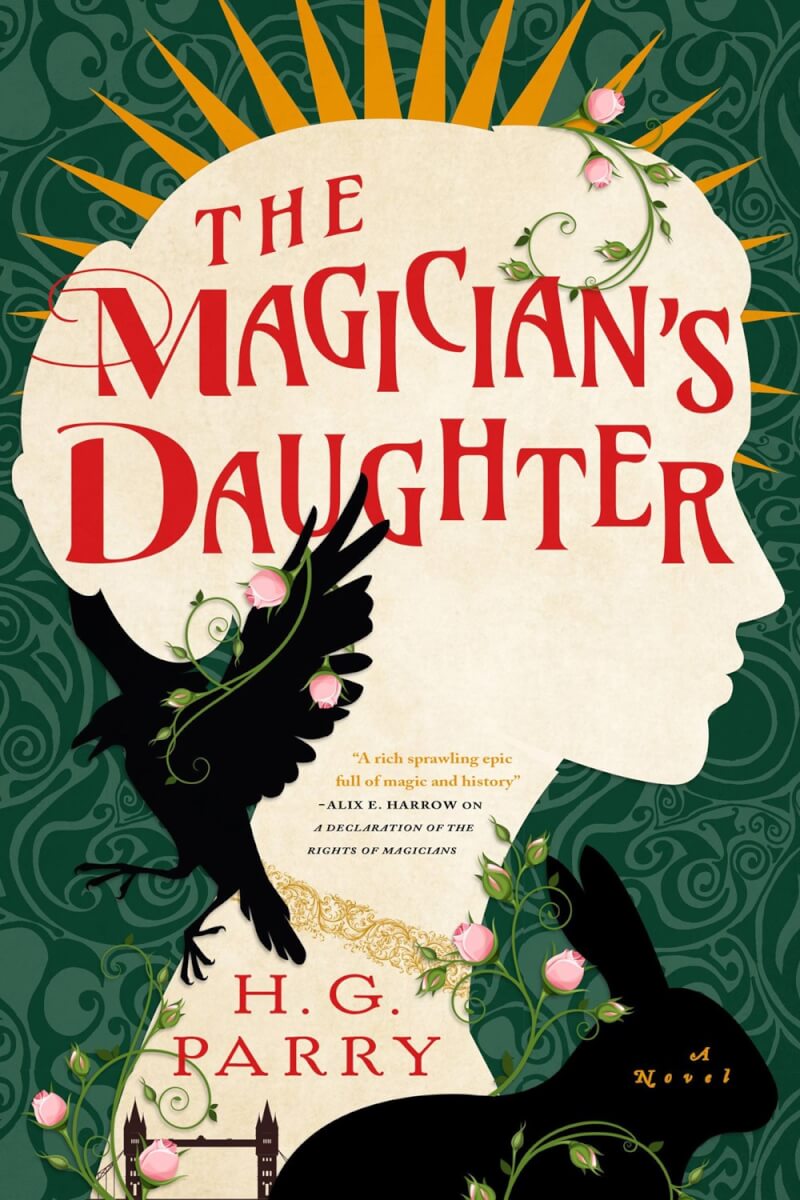Biddy lives on the secret island of Hy-Brasil at the beginning of the 20th century, her only human contact being the kind but mercurial Irish magician Rowan (when he isn’t a raven) and his companion, Hutchincroft (when he isn’t a rabbit). Hy-Brasil has been particularly blessed by magic, which seeps into existence from some unspecified ether, suffusing the world with good fortune and happy circumstances. However, magic has been growing scarce, and mages have become misers. Rowan has been doing what he can, leaving the island to raid his fellow magicians’ storehouses and let a little luck back into the world. Until, one day, he doesn’t come back, and Biddy must leave the island for the first time and go to England in order to find him.
A pandemic project for author H.G. Parry, The Magician’s Daughter was clearly influenced by the enforced isolation of lockdown and the inescapable fear that the world might actually be a dismally unjust place. There are subtle allusions to the Victorian novels that are Biddy’s collective almanac to the world beyond Hy-Brasil, from workhouses and tubercular young women to subversions of traditional gender roles that somehow still end in marriage. But Parry has not crafted a dystopia. Rather, she infuses the book’s industrial-era grime with a literal manifestation of optimism: magic.
The Magician’s Daughter is beautifully crafted, balancing a lushly detailed 1912 London with a narrative leanness. It’s reminiscent of Jonathan Strange & Mr Norrell—if Susanna Clarke were an optimist. It’s a story about an imperfect world that desperately wants to be better, where true evil is an aberration and even monsters may be redeemed. Biddy meets various mages on her journey to find Rowan, and most of their grievances are petty things, twisted beyond recognition by too many decades of coiled resentments and having to fight off one anothers’ magic. Even the villains are more greedy and corrupt than anything, motivated by human failings rather than inhuman desires. In these pages, idealism is a virtue and the world can be saved by the magic in an ordinary girl’s heart.
This is not the kind of fantasy that exposes society’s ills or probes some deep philosophical conundrum. Rather, it is representative of the escapist optimism that COVID-19 seemed to engender. In the face of an unrelentingly depressing reality, where every headline portends some creative new doom humankind must overcome, Parry writes of climbing out from the impending abyss. And she does it well enough that even devotees of fantasy’s darker halls will take solace in this little corner of storybook endings and happily ever afters.




